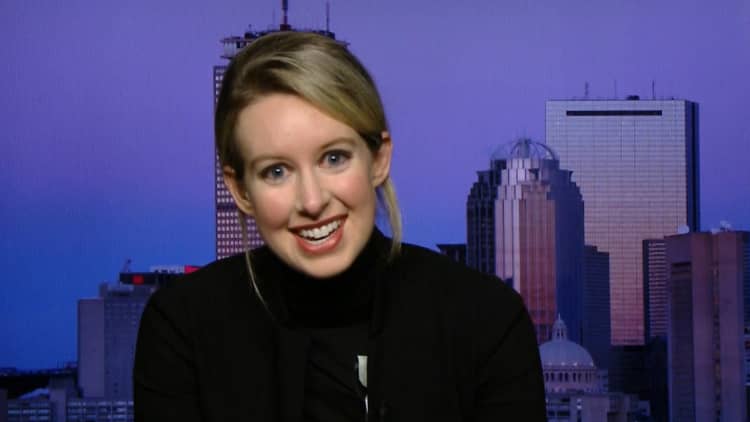The judge in the Elizabeth Holmes case on Wednesday refused to move the trial date despite the defense's concerns over a fair trial due to the COVID-19 pandemic.
Lance Wade, a defense attorney for Holmes, pleaded with the judge to deem the case "essential" in light of various orders telling people to stay indoors.
"There are certain core functions such as serving subpoenas and meeting with witnesses that cannot be performed remotely," Wade said. "They need to, under existing law, be performed in-person and some need to be performed now to keep the current schedule."
Holmes' attorneys filed a motion this week that said the coronavirus has made preparations for her July 28 trial difficult and asked for an order to allow them to travel, serve subpoenas and interview witnesses – actions that may be unlawful during this time.
"Let's cut to the chase," U.S. District Judge Edward Davila said. "What you're saying is because of the current crisis it's almost impossible to continue?"
"This difficult path we're on, we've walked into Mt. Everest," Wade said. "It's close to impossible."
Davila ordered both sides to meet and discuss what tasks can be accomplished amid the pandemic.
"I'm not going to disturb our trial date today," Davila said. "But I'm also mindful July 28 is coming quickly. I'm concerned what our jury pool is going to look like and be like in July, what the national condition is going to be like in July given these terrible conditions. That's not lost on me."
Wednesday's status hearing was conducted by phone. Holmes waived her appearance but her co-defendant Ramesh "Sunny" Balwani was present.
The San Jose federal courthouse where Holmes' case is being tried has been temporarily shut down after a visitor tested positive for COVID-19.
Holmes' company Theranos, a blood-testing startup once valued at over $9 billion, promised its technology could accurately run hundreds of tests with only one or two drops of blood. The company shut down in 2018 after a Wall Street Journal investigation exposed its unproven technology and dubious business practices.
Holmes, a Stanford dropout, and Balwani were indicted on nine counts of wire fraud and two counts of conspiracy to commit wire fraud with the now-defunct blood-testing company.
They each face up to 20 years in prison if convicted.
Davila recently dropped several of the charges from the case and severed Holmes' trial from Balwani.
Following jury selection, Holmes' trial is scheduled to begin August 4.



